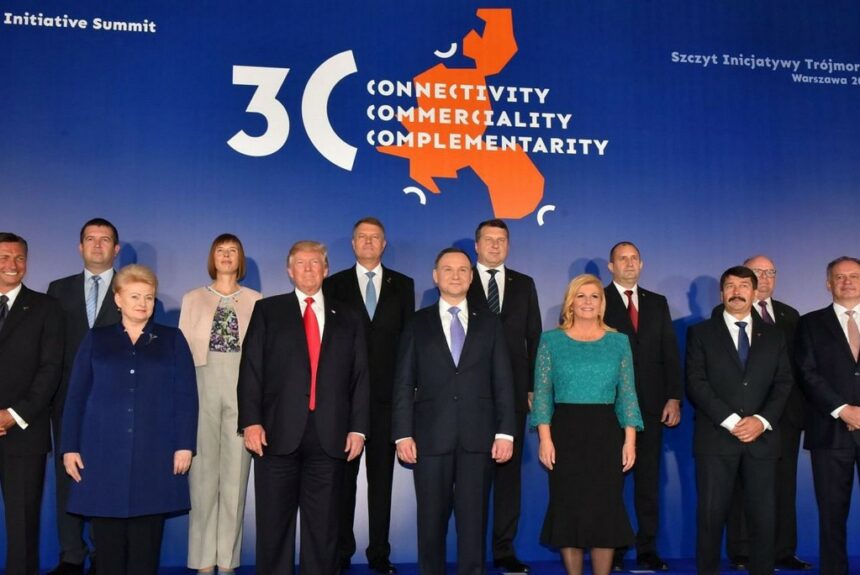There is little doubt that Europe is spiralling towards an energy crisis, one closely connected to the conflict in Ukraine. As energy prices soar, it is worth noting that the entire crisis was avoidable, had Western Europe taken the warnings from the East seriously, and had the United States stood firm in its commitment to support the transition away from an overdependence on Russia.
>>>READ: How the West Can Win Putin’s Energy War
The opposition to Nord Stream II that came from Central and Eastern Europe was for the most part batted away as hysteria by paranoid nations that hadn’t gotten over the Cold War. The reality was that they had the lived experience of Russian aggression and understood that a key strategy of the Kremlin was to create a dependence on cheap oil so strong, that it would underwrite every other issue.
Indeed, the German economy had been entirely retooled so that it turned cheap Russian energy, into expensive luxury goods for export to Russia and China. France, a continent away from Russia, benefited from cheap supplementary energy imports from Germany.
In failing to break Western Europe’s addiction to cheap Russian energy, the nations of Central and Eastern Europe decided to take the initiative and save themselves – they turned to the United States for help.
The result was the Three Seas Initiative (3SI), a coalition of 16 EU member states set on investing in alternative sources of energy. The long-term strategy was to bring online nuclear power across the region – however the immediate to medium-term aim was to open up to American Liquified Natural Gas (LNG) through two new terminals. The first would be built in Croatia and the second in Poland.
The Trump Administration committed $1bn to the project, as advisors in the White House recognised the importance of giving Central and Eastern Europe energy freedom from Russia, whilst also seeing a chance to export un-needed natural gas, that at the time was being produced in vast quantities as a by-product of an expanded oil extraction operation. It was the ultimate win-win situation for Europe and the United States.
The Biden Administration, in reversing the previous White Houses policies towards the Three Seas Initiative, has pulled the rug of energy independence out from underneath central and eastern European allies.
However, it is not too late. There is still a chance that if the Biden Administration reversed course, they could help prevent a disastrous winter in Europe, boost American energy export revenues, and help to build a more resilient Eastern Frontier for NATO and the EU.
>>>READ: As Europe Faces an Energy Crisis, Nuclear Power Gains Momentum
In the first instance, exporting liquefied natural gas to Central and Eastern Europe will prevent not just an energy crisis, but an environmental one as well. Countries such as Poland, the Czech Republic, and the Baltic states – without natural gas – will be forced to switch on coal-fired power plants, the output of which will spew carbon into the atmosphere.
In the second instance, switching on fracking in the mid-west will return hundreds of thousands, if not millions, of jobs to the region by stimulating economic growth from the service sector that will emerge around extraction sites. This will benefit US consumers by bringing down energy costs, and boost the American economy by expanding export revenues.
Finally, by supporting the energy independence of Europe the United States is setting up Central and Eastern Europe to not only survive the winter but give them a chance to insulate themselves from Russian energy extortion. Russia has played a long game when it comes to energy policy, using energy prices as a means of manipulating foreign policy – most notably against Germany. However, by bringing in affordable American energy, Europe will no longer be beholden to the Kremlin keeping pipelines open, or more recently – intact.
Washington should take the Three Seas Initiative seriously and readopt the win-win foreign policy agenda that the Trump administration had advocated just a few years ago.
Robert Tyler is the Senior Policy Advisor at New Direction – the Foundation for European Reform, a centre-right think tank founded by Margaret Thatcher in 2009 to advance conservative and classical liberal ideas in Europe. He previously worked as a geopolitical advisor in the European Parliament, focused on the Middle East and Central Europe.
The views and opinions expressed are those of the author’s and do not necessarily reflect the official policy or position of C3.
